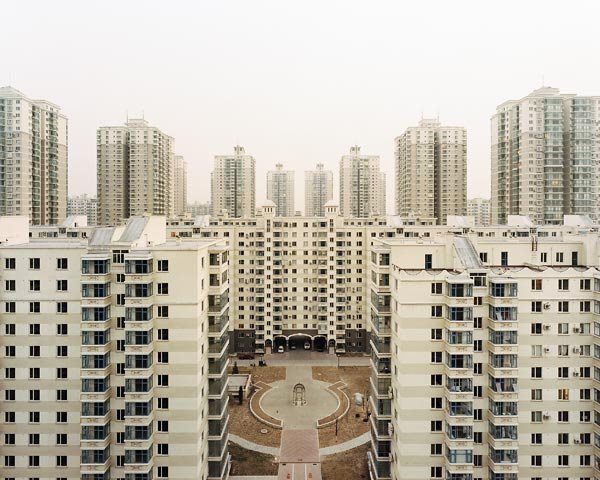 "We’ve entered the danger period,” Mary Peng of the International Center for Veterinary Services, a private animal hospital in Chaoyang, recently told us. The “danger period” she was referring to covers this time of year, when many foreign dog owners relocate to Beijing – unaware of the 35cm size restrictions on dogs in the downtown area.
"We’ve entered the danger period,” Mary Peng of the International Center for Veterinary Services, a private animal hospital in Chaoyang, recently told us. The “danger period” she was referring to covers this time of year, when many foreign dog owners relocate to Beijing – unaware of the 35cm size restrictions on dogs in the downtown area.
“Every year, especially around this time, we have people who bring in big-ass dogs and sign leases for properties within the Third Ring Road.” It’s a situation that leads to “an awful lot of heartache.”
“It used to be that foreigners could get away with a lot of things, but you can’t just plead ignorance anymore,” she added. In one case, Peng recalled, an owner of two golden retrievers was ratted out by neighbors to the Public Security Bureau (PSB), which is responsible for dog registrations. A warning was issued, tears were shed, and the owner had no choice but to forfeit her lease and move outside of the Fourth Ring Road.
Rules are rules, but they also have some logic to them. Keeping big dogs out of downtown, as per a 2003 law, helps allay public fears about potential injuries and illness. “The laws are very practical,” Peng says. “They address public health and responsible pet ownership.”
But Deborah Lukic, whose family includes a “huge” Tibetan mastiff, says big dogs might be the subject of undue concern. At home in suburban Shunyi, she says neighbors sometimes appear to faint at the sight of one-and-a-half-year-old Leo (who, admittedly, is the type of dog known for fending off bears and tigers on the Himalayan plain). “There’s a general fear to the point of exaggeration about anything that’s not a Pekinese or a French poodle,” she says.
Yet for all the concerns about big dogs in Beijing, fears among dog owners may be even greater. Stories of dog seizures by the police have spread on Internet message boards. “They can take your dog,” Peng says. Though the PSB brings dogs to shelters for certain periods of stay, euthanasia is not uncommon when dogs go un-adopted. And, Peng says, “big dogs have a harder shot at finding a home.”
But Peng says concerns about police brutality are exaggerated, and worries that foreigners are avoiding dog registration out of fear. “There’s this notion that the police are horrible, and that China hates dogs,” she says. “But the only thing that will protect any dog is [being] a legal dog.” Alex Pasternack
Owners can register their dogs at the local Public Security Bureau (PSB) for a fee of RMB 1,000 (USD 130), with additional discounts for dogs that are spayed or neutered. An annual permit (shenfenzheng) includes a check-up and rabies shot, and can be renewed for RMB 500, typically only in June. Size limitations vary by district, and big dog owners are advised to check with their local PSB.
 A small article in China Daily last month began simply enough: “On 1 June, the Beijing Waterworks Group announced that the city’s water supply is safe to drink without boiling.” The news could not have come at a better time. For a month, pollution-abetted algae had been taking over China’s lakes – Taihu, Chaohu, Dianchi – turning water the sickly color of Swamp Thing. In February, Evian, that impeccable French mineral eau, was stopped at China’s border, 118,000 liters of it charged with containing an “unacceptable level of bacteria.” To make matters worse, tensions were still publicly boiling over between Danone, the maker of Evian, and its former Chinese partner Wahaha, over an alleged violation of their joint venture. The same week, an op-ed in the China Daily reminded us how “the manufacture and shipping of bottled water adversely impact the environment and the ecology.”
A small article in China Daily last month began simply enough: “On 1 June, the Beijing Waterworks Group announced that the city’s water supply is safe to drink without boiling.” The news could not have come at a better time. For a month, pollution-abetted algae had been taking over China’s lakes – Taihu, Chaohu, Dianchi – turning water the sickly color of Swamp Thing. In February, Evian, that impeccable French mineral eau, was stopped at China’s border, 118,000 liters of it charged with containing an “unacceptable level of bacteria.” To make matters worse, tensions were still publicly boiling over between Danone, the maker of Evian, and its former Chinese partner Wahaha, over an alleged violation of their joint venture. The same week, an op-ed in the China Daily reminded us how “the manufacture and shipping of bottled water adversely impact the environment and the ecology.”